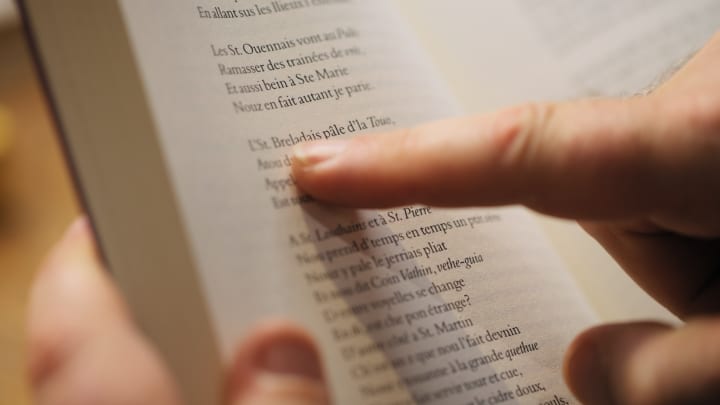
Jèrriais, the indigenous language of Jersey, is more than just words; it is a living connection to the Island's rich history and culture
Jèrriais, the indigenous language of Jersey, is more than just words; it is a living connection to the Island’s rich history and culture. This Norman language, similar to that spoken by William the Conqueror and carried through the centuries by the Islanders, offers a unique insight into Jersey’s landscape and way of life. Today, Jèrriais is still visible across the Island, woven into place names, family names, and even the rhythm of Island life. It is a language that deserves to be celebrated and preserved.
We invite everyone to embrace Jèrriais as a vital part of Jersey’s intangible cultural heritage. By celebrating this language, we keep alive the stories, traditions, and values that have shaped the Island for generations. Whether you’re a lifelong resident or new to the Island, Jèrriais offers a deeper understanding of what makes Jersey unique.
At our sites, we display information bilingually and our staff have job titles in Jèrriais and English. To support your use of Jèrriais in modern life, we offer tailored translation services. Our team can visit you and discuss your language plan. We can help integrate Jèrriais into your products, communications, events, and educational programs.
To further enrich our resources, we welcome contributions from the community. Sound recordings, literature, and objects related to Jèrriais are invaluable in helping us create authentic materials for preserving and passing on the language. By supporting us, you help to ensure that Jèrriais remains an integral part of Jersey’s future.
What is Jèrriais?
Jèrriais is a Norman language, related to the languages spoken in Guernsey, Sark and mainland Normandy. Many Jèrriais words are recognisable to readers of French, but don’t be fooled: Jèrriais has a distinct vocabulary, pronunciation, and grammar that make it different from both French and English, even though it is sometimes known colloquially as ‘Jersey French’.
Jèrriais is an endangered language and there are ongoing efforts to preserve and revitalise it, including educational programs and cultural initiatives.
Jèrriais is a vital component of the Island’s identity, representing a link to its history and traditions and, in 2019, the government of Jersey adopted Jèrriais as its 3rd official language (alongside French and English).
How can I learn Jèrriais?
Jersey Heritage offers the opportunity for you to come along to informal chat groups and speak with other learners and native speakers. If you’re not quite ready to speak yet, that’s fine, just come along to listen.
A Jèrriais class is available online for those who want a structured approach to learning the language but cannot attend classes in Jersey, email us for more information.
We are also committed to including the language in our events, so if you attend any of our sessions, listen out! Additionally, we offer Jèrriais- specific events throughout the year.
Jersey Heritage sites also offer books in the language to assist your learning.
Schools
If you are still at school, your school can request that the Jèrriais Teaching Service visit and make plans to be included in the school curriculum.
Our Jersey Heritage Education Team offer a whole range of heritage-related sessions and, of course, these include the indigenous language.
This is also available to those in Further Education.
What services does Société Jersiaise provide?
Jersey Heritage work closely with the Société Jersiaise to offer community events which celebrate the language.
For those wishing to dive deeper into Jèrriais, the Société Jersiaise maintains a library of Jèrriais literature for research.
L’Assemblié d’Jèrriais holds a monthly meeting to discuss language-related issues. You can also try traditional dancing and singing in Jèrriais.
Finding appropriate Jèrriais words for the modern world is the responsibility of L’Académie du Jèrriais.
Where a word has the letters o and u together (ou), preceding a vowel, they are pronounced as W, as in St Ouen (for those familiar with Jersey place names.)
The letters ‘dg’ are pronounced as ‘J’ (for Jersey)
‘li’ and ‘ly’ are pronounced as ‘y’ (for yellow)
Bouônjour – Hello
A bétôt – Goodbye
Oui / Oui-dgia – Yes / Yes, indeed
Nânnîn – No
S’i’ t’pliaît – Please
Mèrcie – Thank you
Jé n’comprends pon – I don’t understand
And one to which many Jersey residents, indeed all those living near the sea, can relate:
Les mauves sont affrontées comme eune belette! – The seagulls are as cheeky as a weasel!










